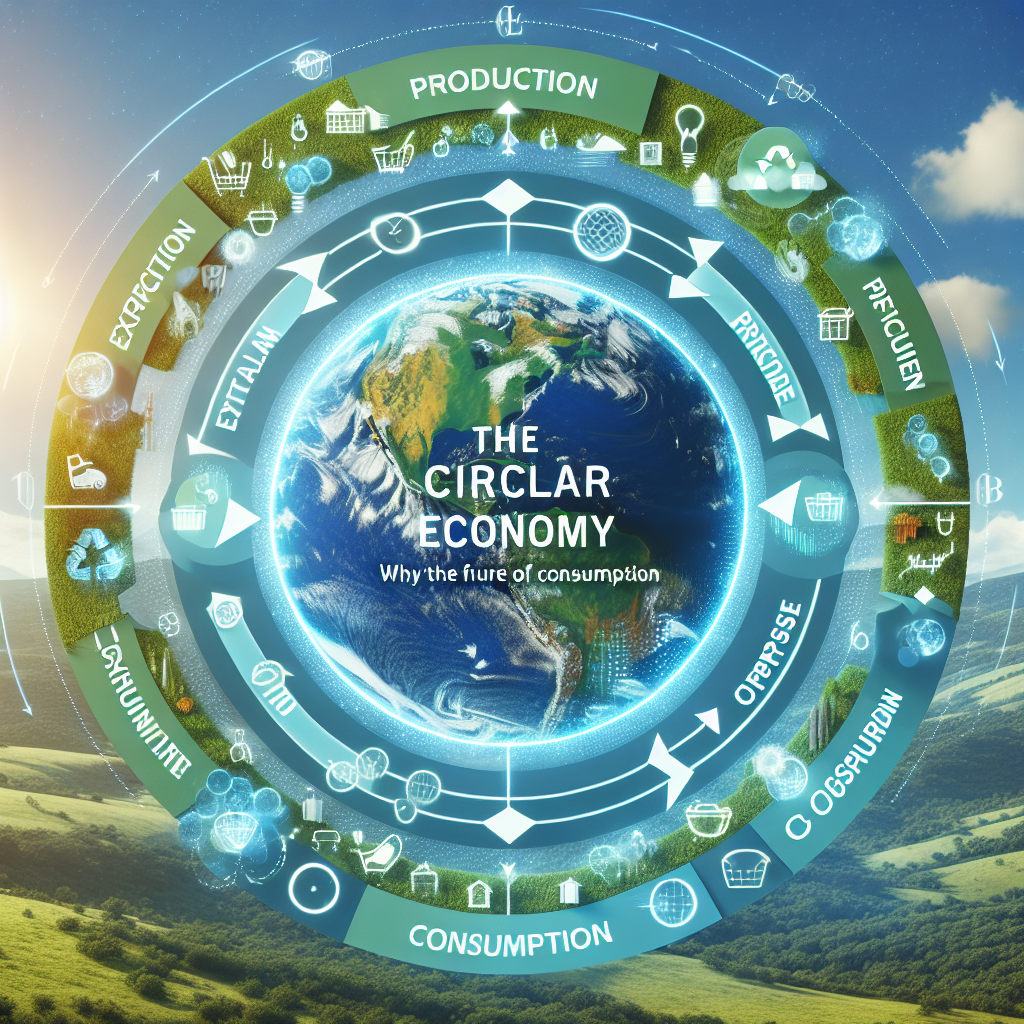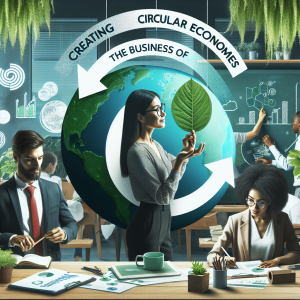The Circular Economy: Why Zero Waste Is the Future of Consumption
In an era defined by rapid consumption and environmental concerns, the concept of the circular economy is emerging as a refreshing paradigm shift. Unlike the traditional linear economy, which follows a “take-make-dispose” model, the circular economy emphasizes sustainability, resource efficiency, and the minimization of waste. This transformative approach not only promises to mitigate environmental degradation but also fosters innovation and economic prosperity. As global citizens grapple with the consequences of overconsumption, transitioning to a circular economy that embraces zero waste may very well be the future of consumption.
Understanding the Circular Economy
At its core, the circular economy is a framework that encourages the continual use of resources by designing products and systems that prioritize durability, repairability, and recyclability. It seeks to create closed-loop systems where waste is minimized, and materials are reclaimed and reused, thereby reducing the need for virgin resources. This shift requires collaboration between businesses, governments, and consumers—each playing a pivotal role in adopting sustainable practices.
Key principles of the circular economy include:
-
- Design for Longevity: Products should be designed to last longer, be easily repairable, and require fewer resources in their production.
- Design for Longevity: Products should be designed to last longer, be easily repairable, and require fewer resources in their production.
-
- Resource Recovery: Materials should be reclaimed and recycled at the end of their lifecycle, reducing the need for new materials and minimizing waste.
- Resource Recovery: Materials should be reclaimed and recycled at the end of their lifecycle, reducing the need for new materials and minimizing waste.
-
- Business Model Innovation: Companies are encouraged to rethink how they deliver value—shifting from ownership to service models (e.g., leasing products rather than selling them outright).
The Case for Zero Waste
Zero waste is an integral facet of the circular economy. It is predicated on the belief that all materials can be reused, recycled, or composted, thereby eliminating the concept of waste altogether. Adopting zero waste practices can be an effective strategy for addressing pressing environmental challenges, such as climate change, pollution, and resource depletion.
1. Environmental Benefits
The environmental advantages of transitioning to a zero-waste model are manifold. By significantly reducing landfill waste, we lower greenhouse gas emissions associated with waste decomposition. Additionally, minimizing resource extraction can lead to less deforestation, habitat destruction, and pollution. Ultimately, a circular economy promotes biodiversity and ecosystem health by encouraging responsible resource management.
2. Economic Opportunities
The circular economy is not just about sustainability; it also opens up pathways for economic growth. As companies shift towards sustainable practices, new markets and job opportunities emerge. For instance, businesses specializing in recycling, repair services, and sustainable product design are likely to flourish in a circular system. A report from the Ellen MacArthur Foundation estimates that transitioning to a circular economy could unlock $4.5 trillion in economic growth by 2030.
3. Consumer Engagement and Responsibility
Consumers play a critical role in driving the circular economy forward. As awareness of environmental issues grows, consumers are increasingly seeking sustainable alternatives. Businesses that prioritize circular principles in their operations often enjoy a competitive advantage. Companies that embrace transparency and ethical production practices resonate well with eco-conscious consumers, bolstering brand loyalty and customer engagement.
The Road Ahead
Transitioning to a circular economy requires systemic changes across multiple sectors. Policymakers need to implement supportive regulations, incentivizing businesses to adopt sustainable practices. Education and awareness campaigns can empower consumers to make informed choices that align with circular principles. Moreover, collaboration between academia, industry, and communities is essential to advance research and develop innovative solutions.
Several cities and regions worldwide are already embracing circular strategies. Initiatives such as urban composting, reduced single-use plastics, and repair cafés demonstrate that circularity is attainable. These examples serve as models for others looking to transition towards a more sustainable, zero-waste future.
Conclusion
The transition towards a circular economy centered on zero waste is not merely a trend—it is a necessary evolution of our consumption patterns. It promises to address critical environmental challenges while fostering economic resilience and innovation. By rethinking our relationship with resources and embracing sustainable practices, we can pave the way for a future that harmonizes human needs with the planet’s ecological limits. As we collectively strive for a more sustainable world, the circular economy represents a hopeful path forward—a model for consumption that prioritizes the well-being of both people and the planet.



